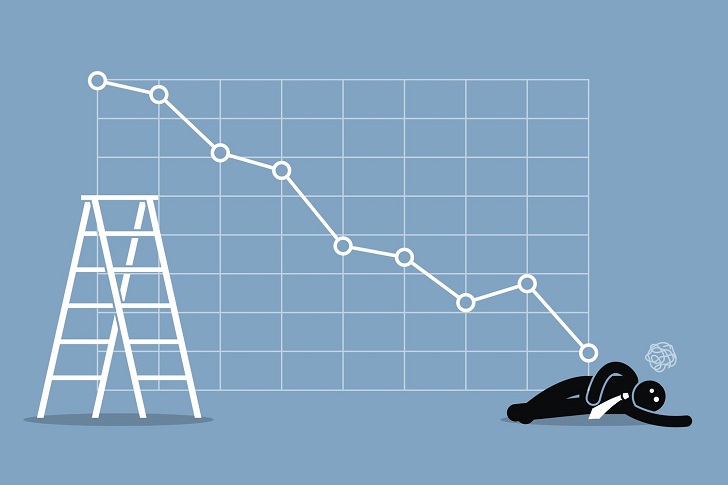
How to Survive a Recession and Thrive Afterward

Recessions can be daunting and scary, but the good news is that they can survive them and even become stronger. No matter where you find yourself as we enter into this recessionary period or whatever financial shape you’re currently in, there are things everyone can do now to ride through these difficult times and work toward long-term financial stability.
It does not matter whether you’re starting from scratch with no savings or having plenty of significant investments; we can all benefit from safeguarding our finances. So read along for ways to make sure this rough patch doesn’t derail all of your plans for your future!

Kenzie/ Freepik | Inflation is now easing, but the wage gains remain
Develop an Emergency Fund
Life is unpredictable, and there will always be ups and downs. One way to prepare for the downs is by developing an emergency fund. Getting caught up in paying bills and enjoying life is easy, but setting aside some money for difficult times is important. A substantial emergency fund can help you get through unforeseen events such as a job loss, unexpected medical bills, or home repairs.
You don’t have to be a financial expert to get started; even putting away a small amount each week can make a big difference over time. By investing in an emergency fund, you’re investing in your future and ensuring you’re ready for whatever life throws.
Cut Costs Where Possible
In today’s fast-paced world, it’s easy to fall into the trap of wanting everything – the latest gadgets, designer clothes, and luxurious vacations. However, it’s important to distinguish between needs and wants when spending to maintain financial stability. Cutting costs where possible can help alleviate financial strain in the long run.
By prioritizing needs over wants, one can live within one’s means and save for the future. Whether it’s reducing unnecessary expenses or finding creative ways to live frugally, taking mindful steps toward cutting costs can lead to a more financially secure future.

Hill/ iStock | Since World War II, we’ve gone an average of 58.4 months between recessions – or nearly five years
Do Some Research on Investments
Investing your money can be a great way to grow your wealth, but knowing the risk vs. reward of each investment option is essential. You could put your money into stocks, real estate, mutual funds, or other investments. Each choice comes with its own set of risks and potential rewards. For example, while investing in stocks could lead to a high return, it also involves significant risk.
On the other hand, investing in real estate offers a more stable long-term investment but requires a larger upfront investment. Before making any investment decisions, do your research to find the best option that fits your financial goals and risk tolerance.

SOMER ANDERSON/ GETTY IMAGES | The most common example of a recession and depression is the global recession of the 2008 financial crisis
Get Creative With Your Income Streams
The traditional 9-5 job may not always be enough to make money. That’s why it’s important to get creative with your income streams and explore alternative ways to make money.
There are countless opportunities to earn extra cash, from selling handmade crafts on Etsy to renting out your driveway on a parking app. You could even offer your skills as a freelancer or consultant in your spare time. By diversifying your income streams, you protect yourself from financial instability and open yourself up to new experiences and possibilities.
More in Financial Adviser
-
How to Lock In a ‘Good’ APR on Your Personal Loans?
When it comes to borrowing, understanding the intricacies of the Annual Percentage Rate (APR) can feel like deciphering a secret code....
March 13, 2024 -
How to Find the Best Personal Loan With Easy Monthly Payments in 2024
A personal loan is an amount of money borrowed from a financial institution, which you pay back in regular monthly payments...
March 8, 2024 -
Why Italy Tops the List for Solo Adventurers
Forget the guidebooks and ditch the group tours. If your soul craves an adventure that’s uniquely yours, then pack your bags...
March 3, 2024 -
From Talking Cars to AI: The Latest Car Tech at CES
Imagine having a chatty companion on your next road trip. One that tells jokes, remembers your preferences, and even helps plan...
February 24, 2024 -
Know the Pros & Cons of Personal Loans Before Applying!
Are you eyeing a personal loan, perhaps to consolidate debt, finance a home renovation, or cover an unexpected expense? Before you...
February 17, 2024 -
What Are Some Major Benefits of a Business Bank Account & How to Open One?
A business bank account is not just a fancy accessory. It is a necessity. Imagine your business as a high-performance vehicle....
February 7, 2024 -
Navigating the Ties Between Love, Living Together, and Financial Security in Retirement
Picture this: you’re nearing retirement, a time for relaxation and enjoying the fruits of your life’s hard work. But here’s a...
January 29, 2024 -
Top 5 Superyachts of 2022
In a world where social distancing became the buzzword, the allure of superyachts took on an even more glittering appeal in...
January 23, 2024 -
Mark Cuban’s Proven Tips for Business Success
Dive into the dynamic world of entrepreneurship with the maverick mind of Mark Cuban, a serial entrepreneur whose $4.6 billion fortune...
January 20, 2024















You must be logged in to post a comment Login